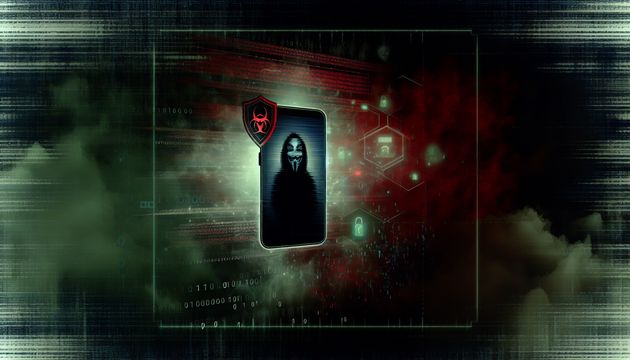
Cybersecurity Breach at Nucor Corporation: Lessons and Implications for the Manufacturing Sector
The cybersecurity breach at Nucor Corporation, a leading steel producer in North America, has sent shockwaves through the manufacturing sector. This incident not only disrupted operations but also exposed significant vulnerabilities within the industry. The breach led to a temporary shutdown of production facilities across the U.S., Mexico, and Canada, highlighting the fragility of industrial operations in the face of cyber threats (CyberExperts.com). The ripple effects extended beyond Nucor, impacting supply chains and industries reliant on its steel, such as automotive and construction (CyberExperts.com). This event underscores the interconnected nature of modern manufacturing and the urgent need for robust cybersecurity measures.
Cybersecurity Breach Impact on Manufacturing Operations
The recent cybersecurity breach at Nucor Corporation, North America’s largest steel producer, has highlighted significant vulnerabilities within the manufacturing sector. This section examines the operational disruptions caused by the breach and the broader implications for the industry.
Operational Disruptions
The breach led to a temporary shutdown of production at several Nucor facilities across the U.S., Mexico, and Canada. This decision was made to contain the security breach and prevent further damage. According to CyberExperts.com, the incident affected day-to-day operations, raising concerns about the resilience of industrial operations to cyber threats.
Supply Chain Ramifications
The halt in production not only disrupted Nucor’s internal operations but also had a ripple effect on its supply chain. Industries reliant on Nucor’s steel, such as automotive, construction, and technology, faced potential delays and increased costs (CyberExperts.com). This highlights the interconnected nature of modern supply chains and the cascading effects a cyber incident can have across multiple sectors.
Lessons in Incident Response and Recovery
Nucor’s response to the cybersecurity breach provides valuable insights into effective incident management and recovery strategies for manufacturing firms.
Activation of Incident Response Plan
Upon discovering the breach, Nucor promptly activated its incident response plan. This involved taking potentially affected systems offline and implementing containment, remediation, and recovery measures (CyberPress.org). Engaging external cybersecurity experts and notifying federal law enforcement were critical steps in managing the incident effectively.
Restoration of Operations
Nucor has successfully restored access to systems impacted by the breach and resumed affected production operations (BleepingComputer). This underscores the importance of having robust recovery protocols in place to minimize downtime and restore normalcy swiftly after a cyber incident.
Data Security and Exfiltration Concerns
The breach at Nucor also involved unauthorized access to its information technology systems, resulting in data exfiltration. This section explores the implications of data theft and the measures necessary to protect sensitive information.
Nature of Data Compromised
While Nucor has not disclosed specific details about the data stolen, it confirmed that attackers exfiltrated limited data from its systems (BleepingComputer). The potential exposure of sensitive information raises concerns about privacy and compliance with data protection regulations.
Data Protection Strategies
To mitigate the risk of data breaches, manufacturers must implement robust data protection strategies. This includes encrypting sensitive data, conducting regular security audits, and ensuring compliance with relevant regulations. By adopting a proactive approach to data security, companies can reduce the likelihood of data exfiltration and safeguard their intellectual property.
Cybersecurity Challenges in the Manufacturing Sector
The Nucor incident highlights the unique cybersecurity challenges faced by the manufacturing sector. This section delves into the factors contributing to these vulnerabilities and the steps manufacturers can take to enhance their cybersecurity posture.
Increasing Target of Cyberattacks
Manufacturing firms have become increasingly attractive targets for cybercriminals due to their reliance on complex supply chains and critical infrastructure. According to IBM’s X-Force 2025 threat intelligence report, the manufacturing sector has faced the highest volume of cyberattacks for four consecutive years (DysruptionHub). This trend underscores the need for heightened cybersecurity awareness and preparedness within the industry.
Need for Comprehensive Cybersecurity Measures
To combat the growing threat landscape, manufacturers must adopt comprehensive cybersecurity measures. This includes implementing advanced threat detection systems, conducting regular employee training, and fostering a culture of cybersecurity awareness. By prioritizing cybersecurity, manufacturers can better protect their operations and maintain business continuity in the face of evolving threats.
Industry-Wide Implications and Future Outlook
The Nucor breach serves as a wake-up call for the manufacturing sector, highlighting the urgent need for enhanced cybersecurity measures. This section explores the broader implications of the incident and the steps manufacturers can take to fortify their defenses.
Emphasizing Business Continuity Planning
The incident underscores the importance of incorporating strong cyber defenses into business continuity plans. As Deborah Lee James, former Secretary of the Air Force, noted, “This incident serves as a stark reminder that no industry is immune to digital threats” (CyberExperts.com). Manufacturers must prioritize cybersecurity to ensure operational resilience and minimize the impact of future cyber incidents.
Collaborative Efforts for Enhanced Security
Addressing the cybersecurity challenges faced by the manufacturing sector requires collaborative efforts between industry stakeholders, government agencies, and cybersecurity experts. By sharing threat intelligence and best practices, manufacturers can collectively enhance their cybersecurity posture and better protect their operations from cyber threats.
In conclusion, the Nucor cybersecurity breach highlights the vulnerabilities within the manufacturing sector and the urgent need for robust cybersecurity measures. By learning from this incident and implementing proactive strategies, manufacturers can safeguard their operations, reputation, and bottom line in an increasingly digital world.
Final Thoughts
The Nucor cybersecurity breach serves as a stark reminder of the vulnerabilities present in the manufacturing sector. It emphasizes the necessity for manufacturers to adopt comprehensive cybersecurity strategies to protect their operations and supply chains. By learning from Nucor’s experience, companies can enhance their incident response plans and data protection strategies, ensuring resilience against future cyber threats. Collaborative efforts between industry stakeholders, government agencies, and cybersecurity experts are crucial to fortifying defenses and sharing best practices (CyberExperts.com). As the digital landscape evolves, manufacturers must prioritize cybersecurity to safeguard their operations and maintain business continuity.
References
- CyberExperts.com. (2025). Steel giant Nucor halts production amid cybersecurity breach chaos. Retrieved from https://cyberexperts.com/steel-giant-nucor-halts-production-amid-cybersecurity-breach-chaos/
- CyberPress.org. (2025). Nucor temporarily shuts down. Retrieved from https://cyberpress.org/nucor-temporarily-shuts-down/
- BleepingComputer. (2025). Steel giant Nucor confirms hackers stole data in recent breach. Retrieved from https://www.bleepingcomputer.com/news/security/steel-giant-nucor-confirms-hackers-stole-data-in-recent-breach/
- DysruptionHub. (2025). Nucor cyberattack production halt. Retrieved from https://dysruptionhub.com/nucor-cyberattack-production-halt/



